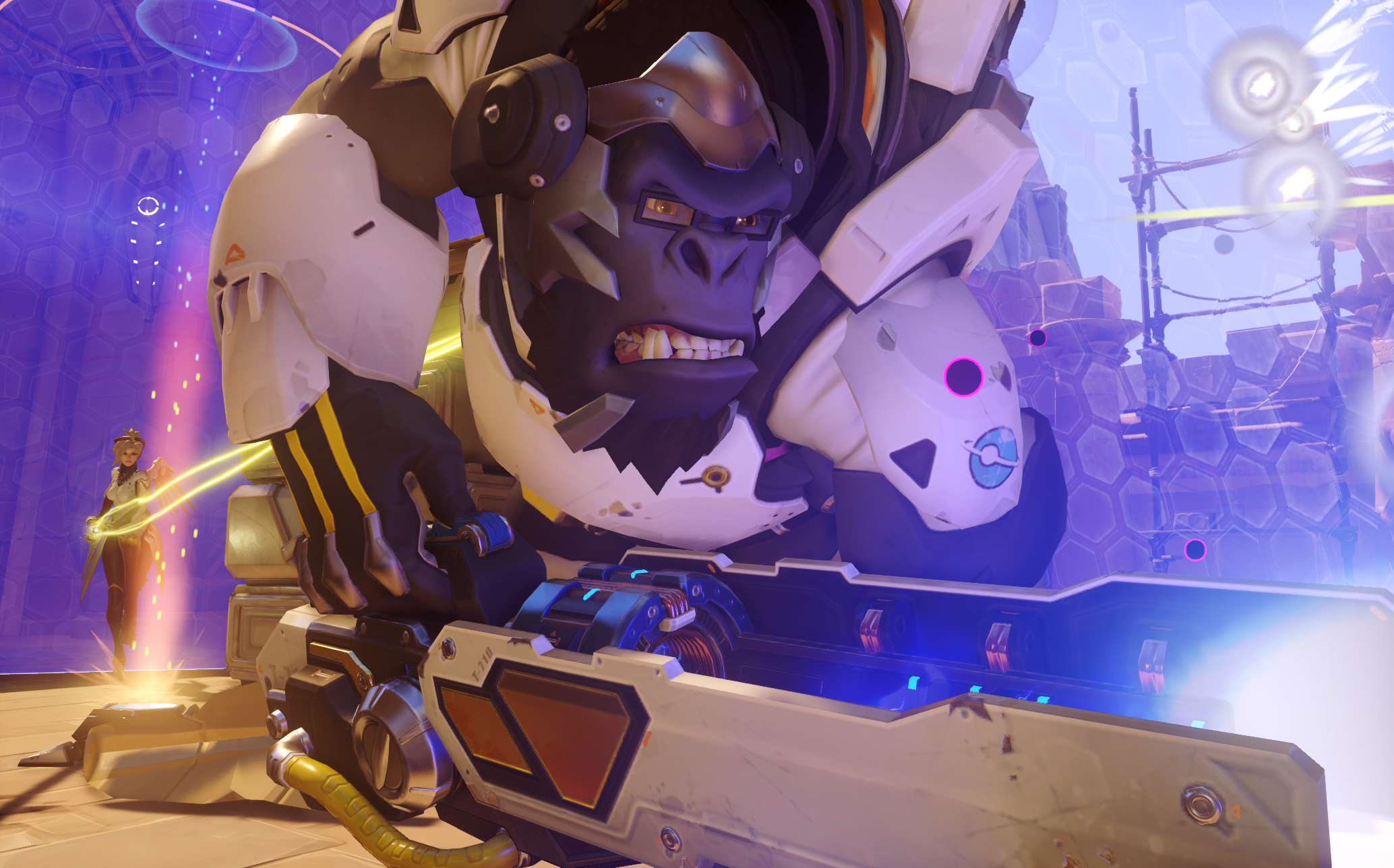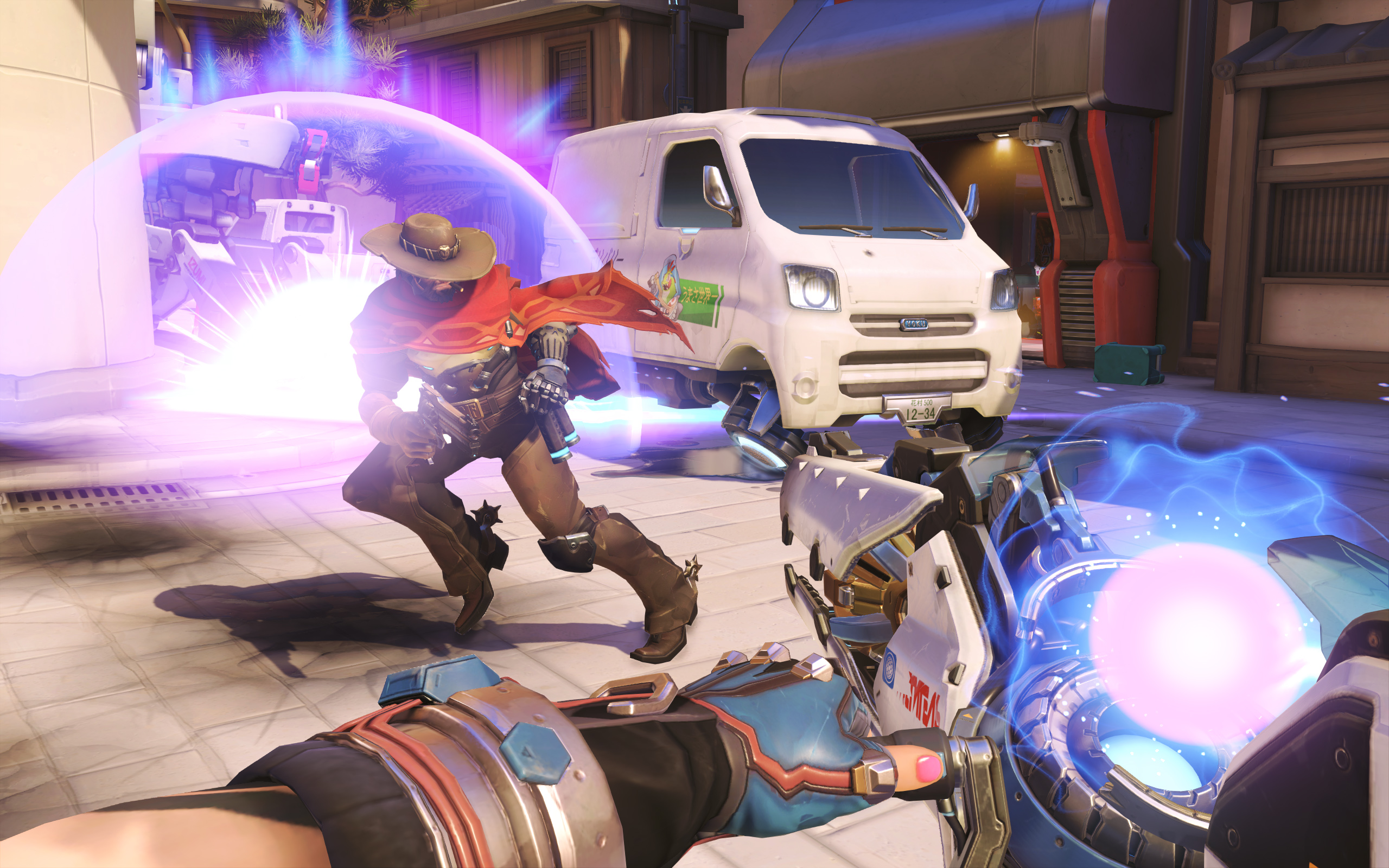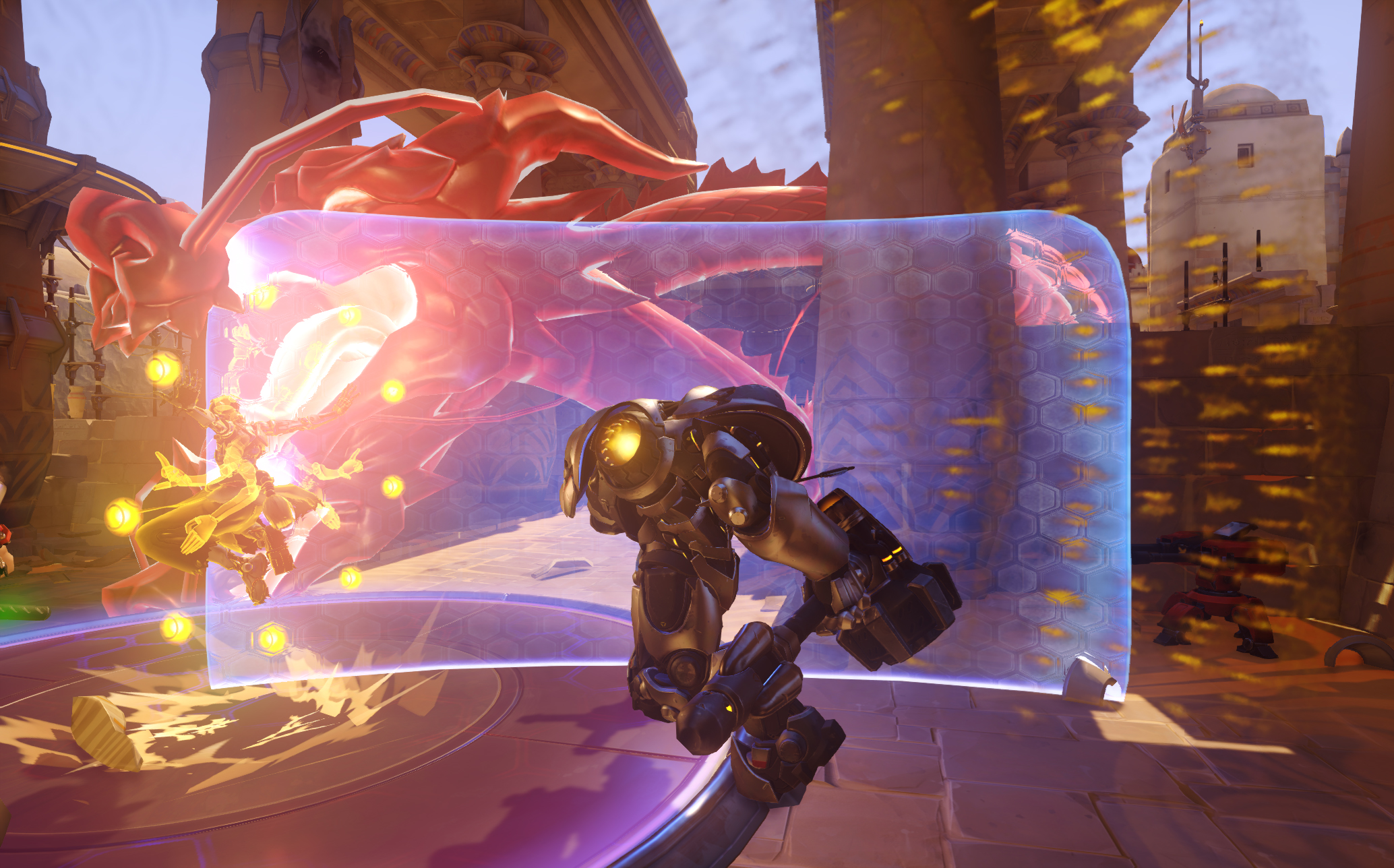A beginner's guide to improving your Overwatch winrate

Overwatch is both simple and complicated in the way that Blizzard's recent games tend to be. It is possible to start playing, and play a lot, without applying much strategy or thinking too hard about your character and the way they optimally operate. You've got to start somewhere, of course, and it's fine to just jump in and start blasting when you first get access.
That said, building and maintaining a positive winrate does take work. As with any other team competitive game, it's easy to see success or failure as luck-based—something that comes down to the quality of the players matchmaking happens to pair you with. This is wrong. There is always something you can do or improve about your own play to skew matches in your team's favour. If you're struggling to improve your winrate, here are some basic things to consider.
Play supports and tanks
The majority of new Overwatch players do not want to play a tank, and even fewer want to play support. These heroes do not often get play of the game, because despite a few tweaks over the course of closed beta Blizzard's algorithm still values kills and skillshots. Overwatch isn't a game about kills or skillshots, however: it's a game about objectives. Objectives—and therefore games—are won or lost by supports and tanks. You have to be extremely good at an offensive character or sniper to match the contribution of a decent support.
This isn't a thankless task. These are fun, dynamic characters tasked with carrying their entire team. Keeping yourself alive and in the right place on the frontline as Mercy takes a lot of good judgement and gamesense and if you can do it you've earned all of the upvotes you'll hopefully get at the end. Even if the game doesn't highlight your contribution, take comfort in the knowledge that your teammates' clutch ults and kill sprees are enabled by your work.
Even if you're not a support, you've got a job to do
...and there's a good chance that job means more than 'chase kills'. Which kills you get matter too. This will vary from character to character, map to map, and whether you're attacking or defending—but often it means maximising your character's ability to counter your opponents' picks. If you excel at getting to the enemy's back line and doing damage—Tracer, for excample, or Reaper—then you should be dealing with the snipers that your supports can't handle. If you're a sniper yourself, you should be aiming to sweep the enemy's plan out from under them by targeting their supports. Pharah excels at taking out static defenses—and so on.
You can, and should, switch character
Write it on the walls. Scream it from the rooftops. Engrave it on your soul. Overwatch is a game about character switching. If your team of defenders is getting pushed back constantly, maybe Symmetra is a bad idea. Maybe you don't need three Hanzos. Maybe, in these final seconds of a match you're losing, a clutch switch to an objective-rushing hero like D.Va or Winston could turn a loss into a victory. Just as the game requires you to continually make playstyle adjustments from moment to moment, it also requires you to think about your team's changing needs over the course of a game.

Fire your gun a lot
This is about the most obvious advice you could give to a shooter player, but: shoot. Shoot a lot. Shoot Reinhardt's shield. Shoot at Bastion in the distance even if he can heal back up. Shoot Torbjorn's turret. Shoot Symmetra's stuff. Shoot shoot shoot. There are three reasons why this is unusually important in Overwatch:
Keep up to date with the most important stories and the best deals, as picked by the PC Gamer team.
- You have infinite ammo, so there's no reason not to.
- Your ultimate is charged when you do damage.
- This is a game about area denial, and people do not like bullets.
Obviously—obviously!—who you're playing has some bearing on this. 'Shooting a lot' means something different to Widowmaker, Tracer, and Lucio. But there's a general principle here that is important to internalise: you need to maximise how many damage numbers are coming out of you and going into the enemy team. That often means adapting your playstyle on a character-by-character basis.
Here's an example: most of Overwatch's supports (with the exception of Mercy) have pinpoint-accurate primary weapons with large amounts of ammo in the clip. Their projectiles move at different speeds—Symmetra's alt-fire is the slowest, then Lucio, and finally Zenyatta—but they all have accuracy in common. This makes them unusually good at 'pre-firing' corners: firing just around parts of the map where you suspect the enemy is about to emerge or peek. You won't get many kills this way, but you will do a consistent amount of (highly annoying) damage. This will charge your ultimate faster, make pushing less attractive to your opponent, and hopefully make life harder for their healers, too.
Hey, listen!
There's a loading screen tutorial tip to this effect, but it's worth reiterating: in Overwatch, enemy sound effects are played louder than those from your own team. In addition, every single ultimate in the game has a very distinctive sound cue, often played just before the effect of the ultimate kicks in. Every time you hear this, you need to respond.
McCree shouting 'it's high noon' means 'get out of his line of sight'. Lucio breaking it down? Abandon your teamfight plans. Hanzo's ult comes with both a shout and an escalating sound effect and a dragon roar. These are all cues to step out of the way.
These cues also sometimes present opportunities. As Lucio, for example, you're really good at nullifying the effect of enemy ultimates. Sound Barrier can absorb the damage of most AoE ultimates, and your healing aura persists through crowd control like Zarya's Graviton Surge. Both D.Va and Reinhardt have good options against an ult-ing Soldier: 76, and Hanzo is able to very quickly ruin Pharah's day if suitably quick and accurate. Overwatch is full of opportunities for counterplays like this, and paying attention to sound cues is how you pull them off.

Waste their time
Time is one of Overwatch's most important resources. Almost everything you do, from scoring kills to healing to building charge on your ultimate, translates into seconds gained or lost. In most modes, the attackers are the players most obviously working against the clock—but the same principles affect defenders too. You always benefit if your opponents are not able to enact their plans as fast as they'd like.
There are many obvious, game-acknowledged ways to slow the enemy down: like shooting them in the face, or healing the person they're about to kill. But there are subtler methods too, things that fall outside of what the game will give you points for. If you can force an enemy to chase you around rather than push for an objective, you've won big for your team even if you haven't done any 'real' damage.
Mei is an example of a character who excels at this, as is Winston. In fact, I didn't really 'get' what Winston offered over D.Va or Reinhardt until I realised how annoying he really is. Winston is the timewasting space gorilla. He can afford to take an indirect approach. You can use your force field to block corridors that your opponent wants to shoot down. You can leap in, chase their back line around for a bit, and then leap out again leaving them to wonder what it is they were doing in the first place. His ultimate is essentially a giant 'look at me!' button—rarely very lethal, but you simply can't ignore a gigantic angry red glowing monkey knocking your tank around.
This applies to everyone else, to an extent. If you are behind enemy lines and you're going to die, make it last. If you're D.Va and you lose your mech in a bad situation, be annoying. Make them chase you in a direction they don't want to go. Make that great Hanzo on their team turn to deal with you. You might only cost them six or seven seconds, but then when you win by six or seven seconds you'll know that your decision to jump around like a dick paid off.
Joining in 2011, Chris made his start with PC Gamer turning beautiful trees into magazines, first as a writer and later as deputy editor. Once PCG's reluctant MMO champion , his discovery of Dota 2 in 2012 led him to much darker, stranger places. In 2015, Chris became the editor of PC Gamer Pro, overseeing our online coverage of competitive gaming and esports. He left in 2017, and can be now found making games and recording the Crate & Crowbar podcast.


